Rural women’s ‘grain banks’ in Uttar Pradesh support small farmers, aid food security amidst COVID-19
The Grain Bank is an initiative that began in 2016, with the objective of benefitting farmers with small land holdings, but during the COVID-19 pandemic and the lockdown, it has turned into a movement to battle starvation and empower women in rural areas Uttar Pradesh.
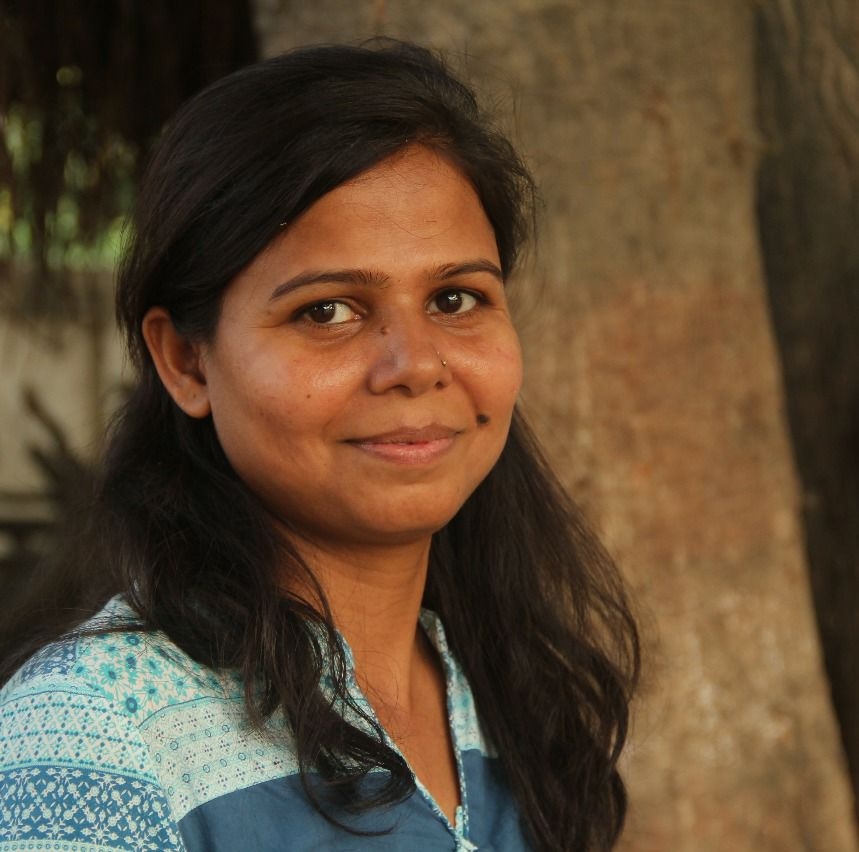
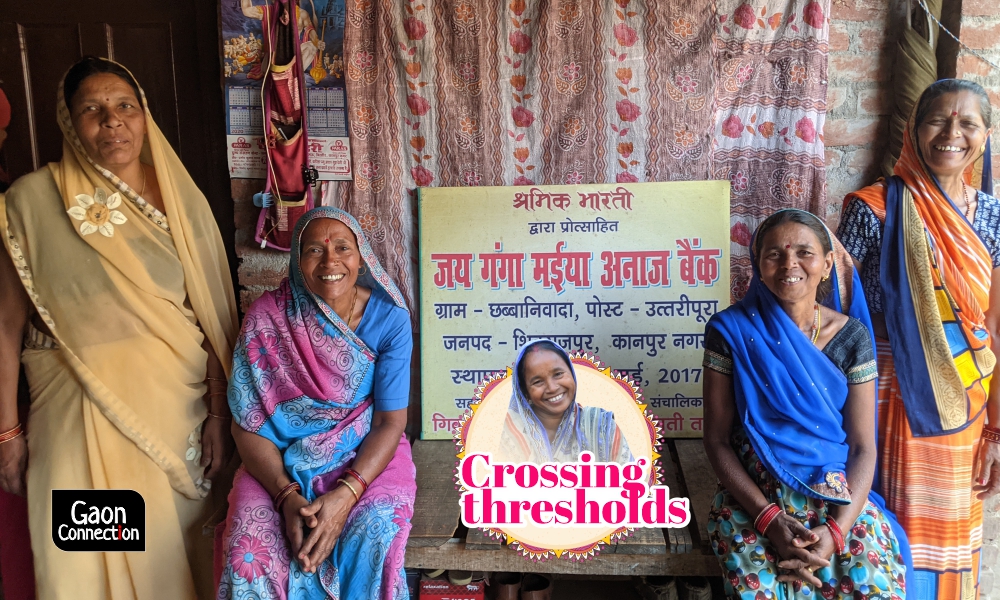
The organisation inspires women in rural areas to launch their grain banks. Photo: Neetu Singh
Grain Banks — a collective accomplishment of women in Uttar Pradesh’s rural areas to pool grains and provide them to the needy farmers has been a story of crossing thresholds and women’s solidarity with an emphasis on social welfare.
In the grain bank initiative, women contribute 2-3 kilograms of grains from their homes and then, the grain stock is provided to women farmers in times of need. In the harvest season, the women pay back the ‘loans’ with a certain rate of interest, which is in the form of grains itself.
Grain bank is an initiative that began in 2016, with the objective of benefitting farmers with small land holdings but has now sprang up in the ongoing COVID-19 pandemic as a movement to battle starvation in the lockdowns and empower women in the rural areas of Uttar Pradesh.
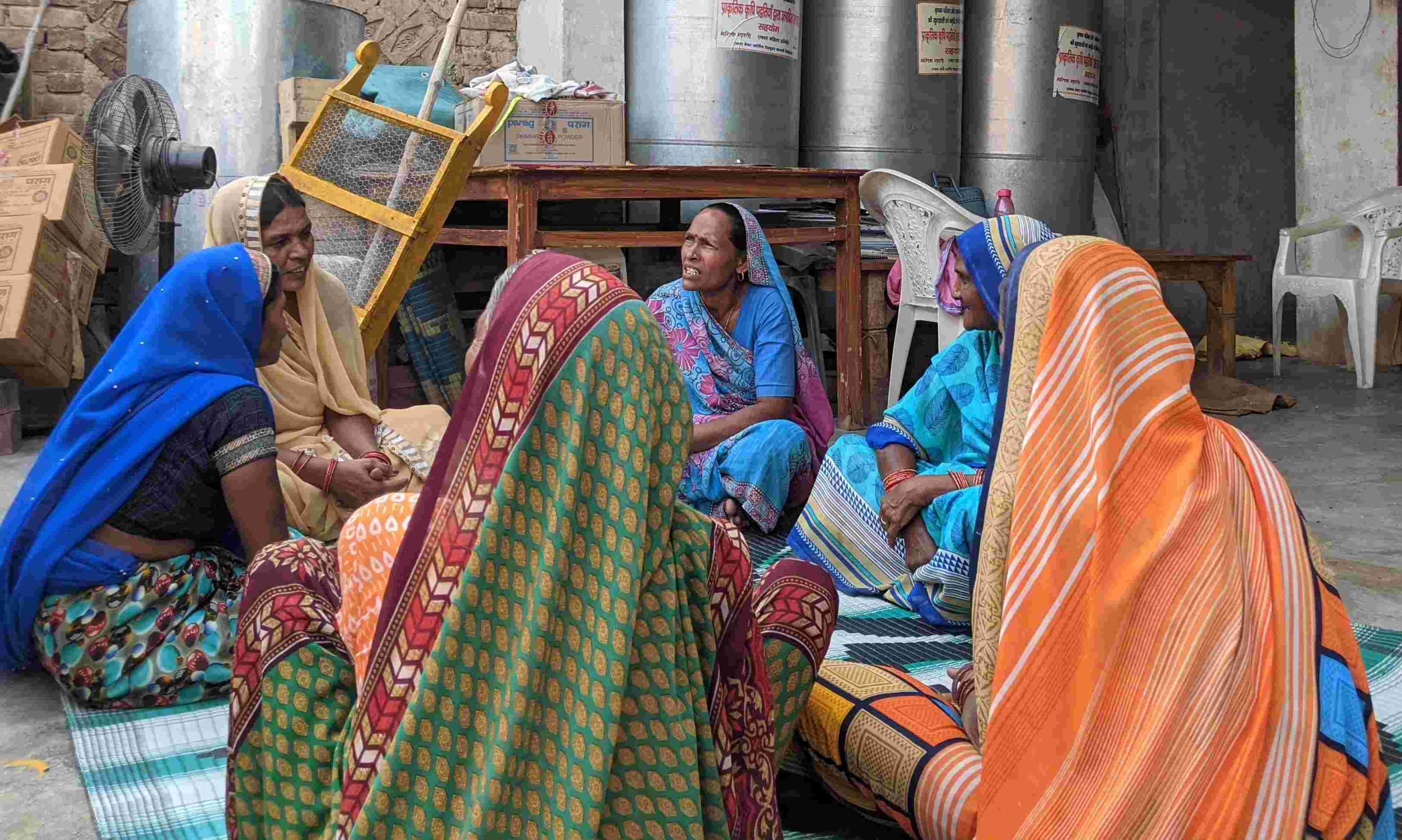
The initiative was launched by a non-profit organisation called Shramik Bharti, which focuses on ‘sustainable development with equal opportunities for all’ in the northern Indian communities.
The organisation inspires women in rural areas to launch their grain banks. Initially, these banks are supported by Shramik Bharti but gradually the local women are encouraged and trained to take up its operation solely by themselves. The organisation also provides storage facilities for these banks to function.
Situated at a distance of about 500 kilometres from the national capital, Kanpur district’s Shivrajpur block is home to Saroj Devi’s family. In her family of 12 members, Devi’s husband is a farm labourer and her three sons occupy themselves with odd jobs to somehow earn for the family’s survival.
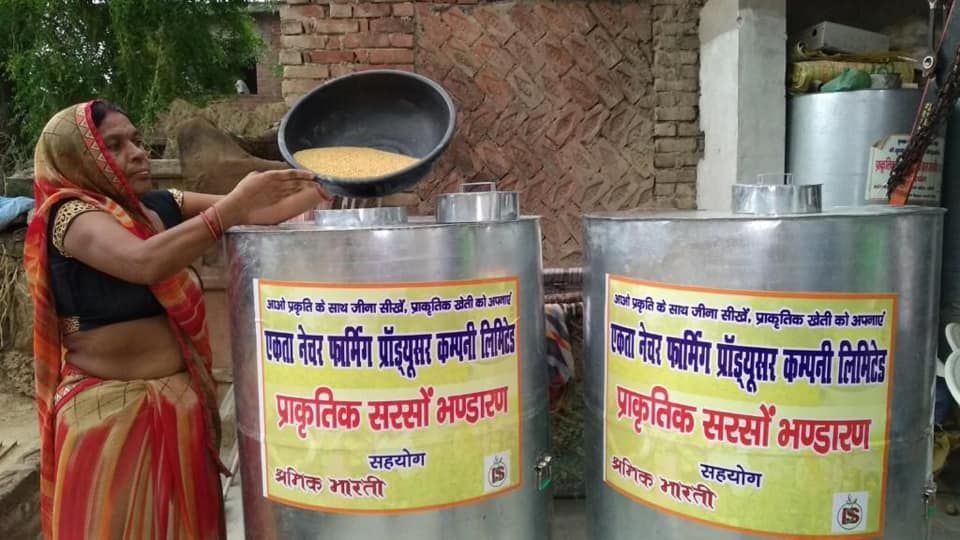
Devi is a native of the Chhabba Niwada village and her family owns around an acre of land. She has been the beneficiary of the grain bank which has helped her family survive the lockdown blues during the peak of the COVID-19 pandemic.
“My husband and the three sons could not find work during the lockdown. The government aid in the form of rationed supplies also dwindled. To keep my family from starvation, I got a loan of three hundred kilograms of wheat from the seed bank two months back,” Devi told Gaon Connection.
“We don’t own enough land to support a family of 12 throughout the year. So, for small farmers like us, seed bank is an agency that has reduced our troubles significantly,” she added.
Also Read: ‘Women’s courts’ in UP villages address gender violence
There are a total of 223 such grain banks in the six districts of Uttar Pradesh, namely — Kanpur, Kanpur (Rural), Bhadohi, Chandauli and Fatehpur. Initially, the grain banks used to stock wheat only but gradually, in its journey of five years, provisions have been made to stock other grains like rice, pulses and oilseeds.
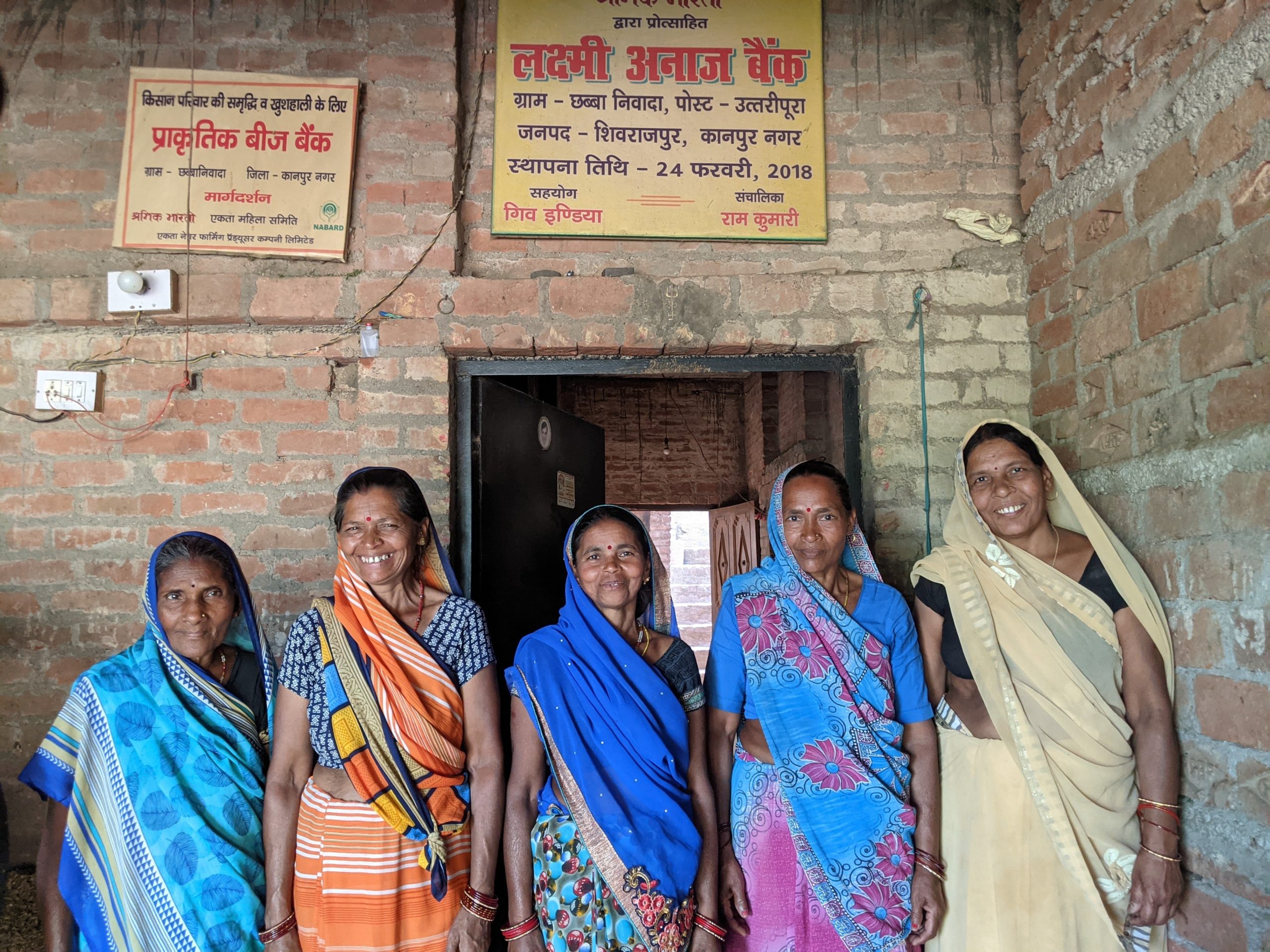
In an address to the upper house of the Parliament during the recent budget session, Prime Minister Narendra Modi had stated that 86 per cent of farmers in the country have land holdings less than two hectares (around five acres).
Hence, a staggering majority of the Indian agrarian communities are mostly landless or have little land to cultivate for their family’s survival, as in case of Devi.
“The idea behind starting seed banks was to make lives easy for small land-holders who otherwise have to travel to far off villages to get loans from government cooperatives. That meant loss of a day’s labour and added expenditure,” Rana Singh Parihar, Agriculture specialist from Shramik Bharti told Gaon Connection.
The organisation’s District Coordinator in Barabanki echoed Parihar’s comments: “In villages, some strata of the society are extremely poor. They are mostly landless or have small land holdings that cannot support their families. The practice of borrowing grains was prevalent earlier as well but the advent of these grain banks has ensured that women of these families can easily get grain loans and can repay them with interest respectfully.”
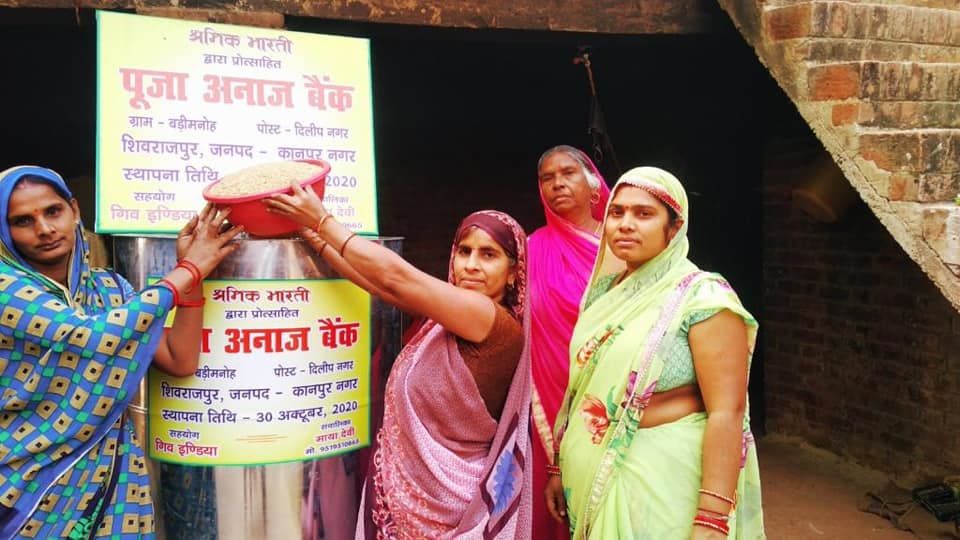
Grain banks come to rescue from hunger in lockdowns
In March, last year, the wheat crop was being harvested in the rural areas – the country witnessed nation-wide lockdown in the wake of COVID-19 pandemic. In such challenging times, the women volunteers at the grain banks supplied wheat flour to needy families.
Tarawati (54), an operator at such a grain bank told Gaon Connection: “We were all harvesting wheat when the lockdown was announced. We stocked a lot of grains in our banks back then. We, the women in the seed banks made kits containing a set of grain including wheat, rice, pulses and oil and supplied them to needy families.”
She also said that due to the welfare activities of the seed banks, great numbers of migrant workers returned to their villages.
Leader of a women’s group, 60-year-old Ramdevi told Gaon Connection: “Usually, only women who are members of the grain banks are provided loans but in the lockdown, we helped the needy people irrespective of their gender or membership in the grain banks.”

